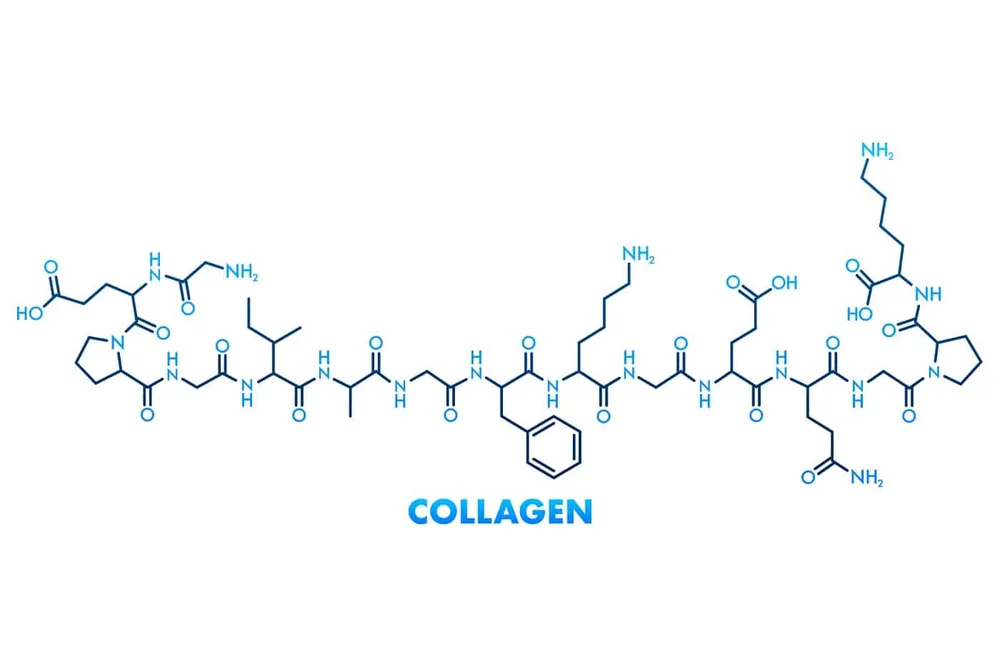Collagen Amino Acids: How They Can Help Brain Health
Medically Reviewed by Dr. Nicole Avena
Are you searching for a natural and effective way to supercharge your brainpower?
Keep reading to learn more about the benefits of amino acids in collagen and how they can help support better brain health!
What is Collagen?
Collagen is a fibrous protein that provides structure and support to various parts of the body. Our bodies produce collagen naturally by breaking down dietary proteins into smaller components called amino acids. These amino acids then combine to form different types of collagen that serve various purposes in the body.
Over 16 types of collagen have been identified in our bodies; however, types I, II, and III are mostly found in connective tissues such as skin and bones. Types IV and V can be found in internal organs like liver or lungs.
What Are Amino Acids?
Amino acids are organic compounds composed of nitrogen, carbon, hydrogen, and oxygen atoms. There are 20 standard amino acids that make up most human proteins. These amino acids can be broken down into three main categories: essential, non-essential, and conditional.
- Essential amino acids can’t be produced by the body and must be obtained from external sources like foods or supplements.
- Non-essential amino acids can be produced by the body, making it less crucial to obtain them from external sources.
- Conditional amino acids usually aren’t essential but may become so under certain conditions where the body is unable to produce enough of them on its own.
How Do the Amino Acids in Collagen Help Support Cognitive Function?

Promoting Brain Health
Collagen is an essential, structural component of the brain. It helps maintain the integrity of the blood-brain barrier, a protective layer that prevents harmful substances from entering the brain. Collagen also provides support for neurons, which are responsible for transmitting signals throughout the brain.
Certain amino acids, such as glutamine and glycine, are vital for neurotransmitter synthesis. Neurotransmitters are chemical messengers that allow communication between neurons in the brain. This communication is essential for various functions like memory, cognition, and mood regulation.
Protecting Against Oxidative Stress
Oxidative stress is caused by an imbalance of free radicals and antioxidants in the body. These free radicals can cause damage to cells, including brain cells. Collagen contains antioxidant properties that can help neutralize these harmful free radicals, protecting the brain from oxidative stress.
Amino acids, like cysteine and glutathione, also have potent antioxidant effects and can help reduce oxidative stress in the brain.
Improving Mood and Emotional Health
Collagen and amino acids are essential for the production of serotonin, a neurotransmitter responsible for regulating mood, sleep, and appetite. They’re also involved in the production of other neurotransmitters like dopamine and GABA, which can play a crucial role in supporting mood and emotions.
Supporting Cognitive Decline
As we age, our bodies produce less collagen, which may lead to a decline in cognitive function. Collagen supplements may help support cognitive function in older adults by providing essential amino acids needed for healthy brain communication.
5 Key Amino Acids Found in Collagen
Collagen is made up of long chains of amino acids that are essential for maintaining the structure and function of different parts of the body. Out of the 20 different amino acids found in collagen, there are a few key players that have been shown to have significant effects on cognitive function.
Arginine
Arginine is an essential amino acid found in collagen. It’s converted into nitric oxide (NO) which is a key neurotransmitter involved in regulating blood flow and vascular tone. Arginine may help improve cerebral blood flow, leading to better cognitive function.
Also, arginine may play a role in improving language skills and verbal memory due to its ability to increase levels of the growth hormone linked to these cognitive functions.
Glycine
Glycine is one of the most abundant amino acids in collagen, comprising about one-third of its total composition. This non-essential amino acid has been extensively studied for its potential role in improving attention and memory in young and middle-aged adults.
Additionally, glycine may help reduce inflammation in the brain. Inflammation may cause neurodegenerative and serious memory issues.
Hydroxyproline
Hydroxyproline is a unique amino acid found only in collagen. It’s formed when proline undergoes hydroxylation, a process that requires vitamin C as a cofactor. Hydroxyproline is essential for stabilizing and providing strength to the triple helix structure of collagen fibers.
While there’s limited research on the direct effects of hydroxyproline on cognitive function, its role in maintaining healthy collagen levels may indirectly support brain health. Collagen has been found to play a crucial role in protecting against degenerative brain conditions.
Lysine
Lysine is one of the nine essential amino acids required by the body for various physiological functions such as tissue repair, building muscle mass, and regulating hormonal balance. Lysine plays a vital role in the synthesis of collagen by providing structural support to this protein. It also may play a role in improving cognitive function.
Proline
Proline is another important amino acid found in collagen. It accounts for about 10-15% of collagen’s overall composition and plays a crucial role in maintaining the structure of collagen fibers. This amino acid is involved in the production of glutamate, an important neurotransmitter that helps regulate learning, memory, attention, and other cognitive processes.
Collagen Amino Acids
Collagen and amino acids play vital roles in supporting various bodily functions, including maintaining a healthy brain and cognitive function. While our bodies naturally produce collagen and some amino acids, it’s essential to obtain a balanced amount of these nutrients from external sources to support optimal brain health.
Incorporating foods rich in these key amino acids, such as collagen peptides from bone broth, into your diet can help support not only your skin and joint health but also your brain function. Taking collagen supplements or consuming amino acid supplements also may be beneficial in supporting cognitive function.
As always, it’s recommended to consult with your healthcare provider before starting any new supplement regimen.
At BrainMD, we’re dedicated to providing the highest purity nutrients to improve your physical health and overall well-being. For more information about our full list of brain healthy supplements, please visit us at BrainMD.
These statements have not been evaluated by the FDA. This content is for informational purposes only. It is not meant to substitute for medical or healthcare advice from a physician, nor is it intended to diagnose, treat, cure, or prevent any disease. Consult your healthcare provider before beginning a new health regimen.



